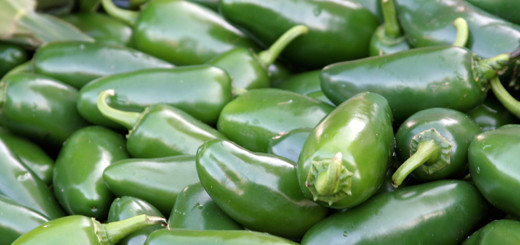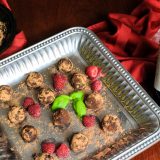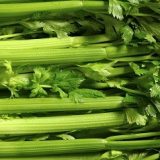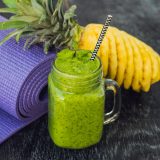Tips for Healthy Living Featuring Mangoes: the Fruit of the Gods
In Hindu culture going back to around 4000 BC, mangoes were known as “fruit of the gods.”
They are very much on-trend right now, as they have been for several years: as a 2013 food industry report put it, mangoes appeal “to multicultural consumers, flavor lovers, and health seekers.”
Here at Sigona’s, we see no sign of the trend abating.
We carry three varieties: Manilas, Hadens and Kents, each with unique characteristics that make trying them all not only a tasty adventure, but also a nutritional delight.
The Manila is a cross between the Philippine Carabao (thus the Manila name) and the Ataulfo. Meaty, intensely sweet and robust are some of the words used to describe this gem.
Its sweetness comes from the Carabao, listed in the 1995 Guinness Book of World records as the sweetest fruit in the world. A compact variety in kidney-shaped form, the skin turns from green to a deep golden yellow when fully ripe.
The Haden was introduced in the early 1900s in Coconut Grove, Florida, and takes its name from retired U.S. Army officer Captain John J. Haden, who grew mangoes on his property. Hadens became such a commercial success that they dominated the market for about 25 years.
In the 1930s, another mango lover from Coconut Grove, Leith Kent, crossed the popular Haden with the mildly sweet yet fibrous Brooks mango. Kents rose in popularity for their excellent taste and lack of fiber (if you have ever had a mango so fibrous that it required dental floss after consuming, you will appreciate this variety!) The large oval fruit usually turns a greenish-yellow color with a dark red blush over a small portion as it matures.
Production eventually moved to Mexico, Ecuador and Peru. Our crop comes exclusively from Mexico.
One unexpected fact about the mango is a little-known truth about oils in the leaves, stems, sap and skin. Unlike other fruits, these parts of the mango tree contain a resin similar to that found in poison oak. Fortunately, the fruit itself is has no resin, so sensitive people can safely eat peeled mangoes or drink mango juice.
Mangoes are among the five fruits least likely to have pesticide residue (along with avocados, pineapples, kiwis and bananas).
One cup of mango has only 100 calories, supplies our daily dose of vitamin C, 25% of our vitamin A, a healthy dose of potassium for keeping blood pressure down, and a few grams of fiber to keep the digestive tract running smoothly.
When choosing mangoes, go for feel rather than color, as color has nothing to do with ripeness. When it gives a little (like a peach or avocado), it is ready to eat.
Store unripe mangoes at room temperature. To speed ripening, place them in a paper bag. Once ripe, move them to the refrigerator for up to five days. They can be peeled, cubed and placed in an airtight container or frozen for up to six months. To prepare, be sure to wash the skin thoroughly before cutting.
There are many ways to eat mangoes, from cutting them into spears, to eating them out of hand, to a vibrant addition to salad or salsa. For salsa, in a medium bowl combine diced mango with diced red pepper, diced red onion, cilantro, lime juice, olive oil, cumin and kosher or sea salt. Serve as a topping on grilled fish or enjoy with taro chips.
Enjoy and share these fruits of the gods while they are briefly here. Your body and friends will thank you!











